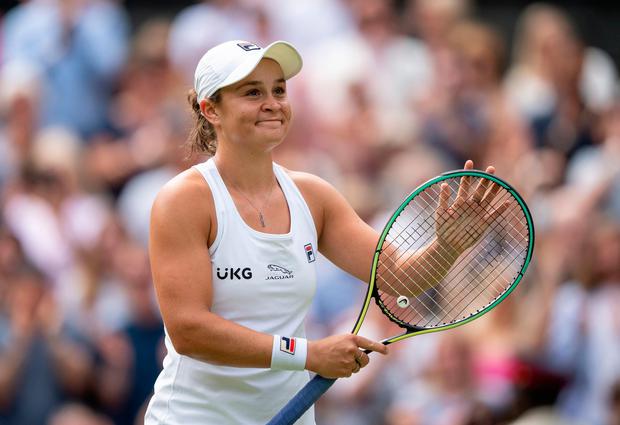Tennis Predictions Can Benefit From Knowing 10 Essential Aspects About The Form Of The Player And Fitness
Understanding the form and physical fitness of players is key to making correct tennis predictions. Check out these 10 tips for recent performance in matches: Not just the results but also the level of competition and quality of the performance of the players should be taken into account. It’s possible that a player who barely makes it through a match, might not be performing at their best.
Surface Suitability: Some players excel on certain surfaces (clay, grass, hard court). Study how they performed on the court you’re playing on in the past.
Head-to-head records: The past performance of a player in comparison to one particular opponent can provide a great insight. Certain players are not able to perform well against other players even when in generally good shape.
Check the latest injury reports to determine if there have been any recent injuries. Even minor injuries can have a big impact on your performance, particularly if you play a sport that requires physical effort, such as tennis.
Travel and Fatigue: Consider the travel schedule and the time zone changes. The players who have played several difficult matches or traveled long distances might be tired.
Playing Conditions and Style: Some players find it difficult to play in extreme temperatures or in strong winds. Knowing how to handle different weather can be vital.
Motivation and Mental State The motivation of a player can depend on the event. Grand Slams can be more important to some more than smaller tournaments. Mental acuity, particularly when under pressure is essential.
Coaching Changes – A new coach can improve or degrade performance. Check out recent coaching changes and the results that result from them.
Tournament Tradition: Some players are more attracted to specific tournaments. Examine whether the player’s performance in the event is consistent.
Match Load – Consider the number of matches an individual has played. A busy schedule could result in fatigue or burnout. However, too few matches could suggest that the player has a lack of competitive rhythm.
Be sure to keep these aspects in the forefront of your thoughts for more accurate tennis forecasts. Additionally, you will be able to pinpoint the nuance and dynamic nature of player performance. Check out the recommended Free Daily Tennis Predictions for site tips including tips and predictions, tennis betting predictions, daily bets, betting odds us open tennis, us open odds womens, tennis odds today, us open tennis prediction, betting tips free, betting tips today, tennis betting odds and more.

Ten Tips On Psychological Factors When Making Tennis Predictions
These elements could have a significant impact on the outcome of a match. Here are ten tips to consider when analyzing these factors for making predictions:Confidence Levels: Assess the player’s confidence based on their recent performances and achievements. If a player is in an upward or recent trend may have more confidence. However, a player on a losing spree might not be as confident. confidence in themselves.
Mental Toughness – Examine the players’ ability to deal with stress, particularly during crucial moments like tiebreaks or breaking points. Mentally resilient players are often more effective under pressure.
Previous Encounters: Examine how players have performed against one another over time. Psychological issues, such as having a negative mental image of a particular opponent, can influence your performance.
Handling Adversity Consider how the players deal with setbacks, such as losing sets or falling behind. The ability to solve problems and remain focused will assist players to turn games around.
Goals and Motivation. Assess motivation according to the player’s current goals. Someone with the aim of achieving a higher rank or winning an important award may be more driven.
Analyzing how athletes deal under pressure, regardless of whether from the media, their supporters or even their own goals. The players with high expectations could or not be able to rise to the occasion or struggle under the weight of these expectations.
Emotional stability: Swings in emotions can have a negative impact on performance. People who manage their emotions are more likely than others to remain focused throughout the game.
Think about the psychological impact from recent injuries. A player recovering form an injury can be cautious or unsure, affecting their performance. However, a healed athlete may be more confident.
Recent Changes. Evaluate whether recent events (such as a coaching change or life-altering incident) have affected players’ psychological state. Positive changes can boost performance and negative ones could cause a negative impact.
Crowd Influence: Consider how players react to positive or hostile crowd. Certain players are more comfortable with the support of their home crowd, whereas some may be frightened or distracted by the crowd’s reactions.
The incorporation of psychological factors into your analysis can help you gain an understanding of how psychological or emotional factors may influence a player’s performances, allowing to make more precise and well-informed predictions. Read the best Tennis for website tips including best betting tips, us open odds womens, tips and predictions, betting predictions today, sure bet for today, best tennis predictions, picks of the day, today game prediction, betting picks today, matches today and predictions and more.

Tennis Predictions: Tips For Location Of Matches
When analyzing the match location for your predictions Here are 10 suggestions to consider: Home advantage: Home advantage: Players are more successful due to familiar surroundings and supportive fans. Ten points to consider when looking at the location of the match to make your predictions.Home Advantage: Tennis players perform better in home settings due to their surroundings being familiar and a hospitable crowd. Check the track record of the player in this particular area as well as the effect of the home crowd on their performance.
Different tournaments will have different courts. Players might be more successful on the surfaces they feel most comfortable on. Examine the strengths and weaknesses of every player on the type of surface.
Climate and Weather : The weather conditions in a specific location (such as wind, humidity and temperature) may affect the game. Analyze how each player performs under similar conditions and how they adjust to weather conditions.
Altitude: Locations with high altitude (such as the tournaments that take place in Mexico City and Bogota) can cause the ball to bounce faster and bounce harder. People who are experienced with the conditions or who have performed well in similar conditions could have a leg up.
Indoor vs. Outdoor courts do not need to worry about the weather conditions, whereas courts outside are impacted by wind, the sun and many other elements. How do players perform in both outdoor and indoor environments?
Travel Fatigue: Be aware of the distance that each participant has traveled. Long trips can result in fatigue that can affect performance, particularly in the initial rounds of a tournament.
Atmosphere at the Venue and Size of the Venue. The atmosphere in the venue along with the size of the venue, may affect players in different ways. Large venues with a lot of crowd noise can be intimidating, while smaller, more intimate settings may feel more relaxed or less tense.
Event Significance – The importance of a tournament in an area may affect performance. Players may be more motivated to take part at Grand Slams, elite tournaments and other competitions with high stakes as opposed to lower-level events.
Surface condition: Conditions can differ even within the same surface. For instance, courts made of clay could play differently depending on the weather and how well they’re maintained.
The past and records of some players enjoy historical advantages at certain venues, either due to personal success or familiarity with the venue. Look up previous performances to get an idea of what you can anticipate.
If you take the time to carefully evaluate these elements in relation to the location of the match You can get an understanding of how the setting can affect the player’s performance and enhance your accuracy in making predictions.




